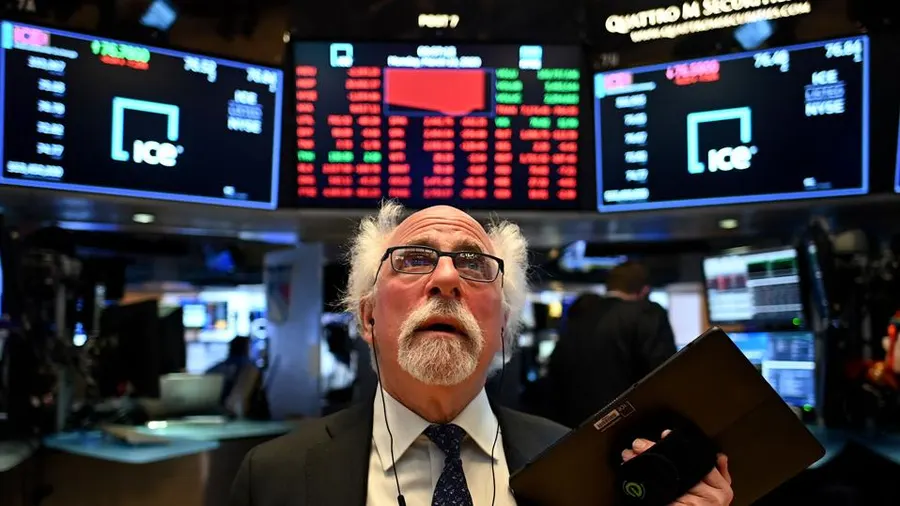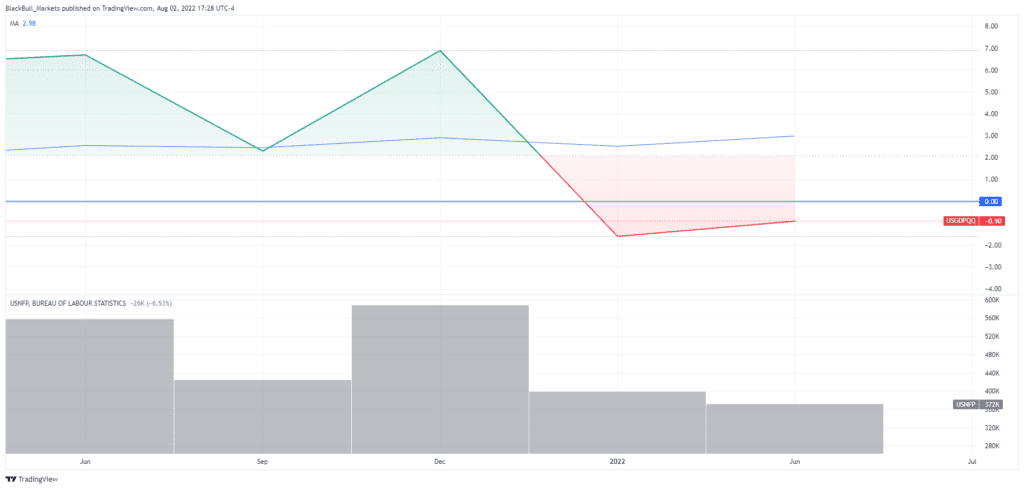
U.S. Economy Faces Uncertain Recession Status Amid Slowing Growth and Strong Employment
02 August 2022
184 views
Despite two consecutive quarters of economic contraction, the U.S. has yet to be officially declared in a recession. The economy shrank by 0.9% year over year in the second quarter of 2022, following a 1.6% decline in the first quarter, meeting the technical definition of a recession. However, the National Bureau of Economic Research (NBER), the organization responsible for officially declaring a recession, has not made such an announcement.
The slowdown in the U.S. economy during the April-June period was driven by a drop in private inventory investments, reduced residential fixed investments, and decreased federal government spending. General merchandise stores and motor vehicle dealers slowed their inventory build-up, contributing to the decline in private inventory investment. At the same time, cuts in non-defense government spending also played a role in the downturn. These factors outweighed increases in exports and personal consumption, which otherwise might have provided some economic support.
The NBER, a nonprofit founded in 1920, is tasked with determining the official start and end dates of recessions in the U.S. The organization defines a recession as “a significant decline in economic activity that is spread across the economy and lasts more than a few months,” and its decisions consider a broad range of indicators, including income, spending, and employment.
While the U.S. has not been officially declared in a recession, many analysts agree that economic growth is slowing. President Joe Biden acknowledged the slowdown, attributing it to the economy’s recovery from last year’s historic growth and the regaining of private-sector jobs lost during the COVID-19 pandemic. Biden remains optimistic, stating, “We are on the right path and we will come through this transition stronger and more secure.”
Federal Reserve Chairman Jerome Powell also expressed confidence, noting that the strong labor market suggests the U.S. is not currently in a recession. In June, non-farm payrolls increased by 372,000, surpassing market expectations of 250,000, with the unemployment rate holding steady at 3.6%. Powell commented, “This is a very strong labor market … it doesn’t make sense that the economy would be in a recession with this kind of thing happening.”
However, some analysts warn that a recession may be inevitable. Despite the current strength in U.S. consumption and employment, soaring inflation, lingering market volatility, and global economic challenges could eventually push the U.S. into a recession. The International Monetary Fund (IMF) recently lowered its growth forecast for the U.S. economy to 2.3% for this year, down from an earlier projection of 3.7%, reflecting concerns over the nation’s economic trajectory.





